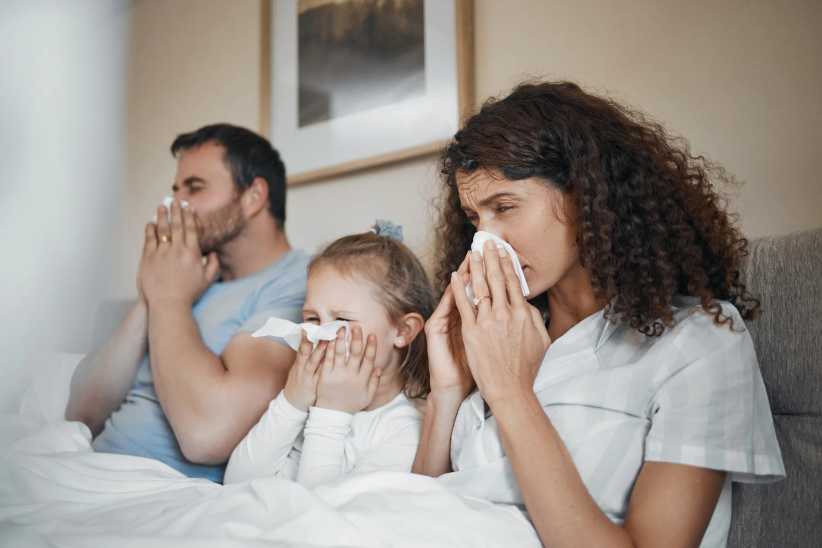
Expert Tips on Navigating Seasonal Allergies
Spring is in the air. And, unfortunately for allergy sufferers, so is pollen.
Allergens are everywhere this time of year, to the point that they may feel unavoidable at times.
On top of typical seasonal allergy symptoms (wheezing, coughing, runny nose, watery eyes), exposure to allergens can have wider-reaching health effects, like asthma flare-ups or trouble sleeping at night while battling symptoms.
While it’s nearly impossible to avoid seasonal allergies entirely, there are ways to stay on top of them.
We sat down with Dr. Wendy Johnson from Tribeca Pediatrics to get some expert tips on navigating allergy season.
Psst… Check Out NYC Spring Bucket List: 25 Amazing Activities to Do This Spring!
Limit Exposure to Allergens At Home
It’s nearly impossible to avoid seasonal allergens when you’re outside, but there are steps you can take to limit how much they make their way into your home.
Johnson suggests steps like using air conditioning with clean filters instead of opening windows and keeping up with dusting and mopping around the house “just to minimize how much of that stuff can accumulate.”
Keep an eye on fabrics in your home, where allergens are likely to cling, like heavy drapes, curtains and even stuffed animals.
“There’s a lot of kids who love stuffed animals, even some adults,” Johnson says. “But those stuffed animals are not their friend.”
While your kids may love to cuddle stuffed animals to go to sleep at night, it might be worth taking a break from them during allergy season, especially if your child suffers from seasonal allergies.
“If you’re sleeping all night long and you’re surrounded by all these allergens, a lot of times you’ll wake up with allergy symptoms,” Johnson says.
Wash Off Allergens After a Day Out
Just like how allergens can blow in from an open window and live on heavy curtains in your kids’ bedroom, you can also carry allergens into your house, especially after a long day of having fun outside.
“Clothes can have allergens on them from being outside,” Johnson says.
Have your kids take a bath or a shower when they get home from playing outside to wash away any allergens that might be lingering on them, on their clothes or in their hair.
Think About Where You’re Spending Time Outside
Johnson says she’ll frequently have kids come in to see her on a Monday with seasonal allergy symptoms after playing in the park all weekend. If your family frequently suffers from seasonal allergies, be mindful when planning family outings in the spring.
That doesn’t mean you need to put family fun on hold for the season! Look for places where your family can have fun inside, or outside in an environment with fewer trees, flowers, and other pollen producers.
Or, if you still want to enjoy the city’s countless parks without worrying about allergy symptoms, don’t be afraid to pop on a mask to reduce your exposure to airborne seasonal allergens.
Look For Ways to Provide Relief
Despite best efforts at keeping seasonal allergies at bay, the symptoms still strike sometimes. Luckily, there are ways to find relief from seasonal allergies.
An over-the-counter antihistamine (Johnson recommends cetirizine, most commonly known under the brand name Zyrtec) can help relieve symptoms like watery eyes, runny nose, hives, and itching.
There are also over-the-counter options for allergy relief, eye drops or steroid nasal sprays for additional relief.
If you’re looking for non-medicinal solutions to allergy symptoms, a washcloth with cold water can bring relief for red and puffy eyes.
Know When to Reach for Antibiotics
It’s understandable that parents want to find relief for their children’s symptoms as soon as possible, but Johnson says this can lead to parents coming into the doctor for antibiotics when they’re not needed.
“Most of the time, when kids have watery, red, itchy eyes, they do not need antibiotic eye drops,” Johnson says.
Johnson recommends taking preventative steps or relief measures for allergy symptoms before seeking out additional measures like antibiotics.
Psst… Check Out Where to See Cherry Blossoms in New York City























